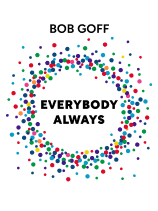

This article is an excerpt from the Shortform book guide to "Everybody Always" by Bob Goff. Shortform has the world's best summaries and analyses of books you should be reading.
Like this article? Sign up for a free trial here .
Do you let yourself get bogged down about what’s missing from your life? Do you worry that you don’t have enough to offer God?
In his book Everyone, Always, Bob Goff discusses why you should always be grateful for what you have. Goff says that God doesn’t care about what you don’t have, He only cares about what you do with what you do have.
Continue reading for more on being grateful for what you have.
Focus on What You Have, Not What You Don’t
God doesn’t care about the things you don’t have. He doesn’t grant you only a sliver of His love if you don’t have much to offer Him. He wants you to use what you have to feel all His love and use it in your life. That’s why you should always be grateful for what you have and stop focusing on what you lack.
You likely get bogged down about what is missing from your life. You allow these believed deficiencies to define you and keep you from seeing what else is possible. But when you focus on what you don’t have, you lead your life down the wrong path. The body follows the head, and when you turn your head away from God’s love, you walk away from your faith.
Karl’s Story
In his book Everyone, Always, Bob Goff shares the story of Karl, a young man who lost all movement in his arms and legs in high school after a diving accident. Karl went from being an athletic young man full of mischief and hope to someone who only had use of his eyes, mind, and tongue. He was given a special chair to operate using a straw and was sent out into the world to learn how to live in his new body.
Karl didn’t let his paralysis keep him from making something of his life. He understood what he had to work with and offered it up to God with love. What he received was more love and guidance for his path forward. Karl and Bob graduated from law school together. Karl went on to work for the California attorney general’s office. He argued and won five cases in front of the California Supreme Court and made great strides in changing laws that affected millions.
Karl’s journey represents someone who refused to be limited by what they no longer had. He had no choice but to look inside himself and offer up what he could to God. He had faith that God would help him make something with what he still had, and He did.
Many of us have the use of our arms and legs and could use them to help other people, but we don’t. We have the gift of sight and can see people suffering around us, but we watch from a distance, rather than jumping into action to make a difference. We can intellectually understand pain and hardship, but we don’t act on that understanding, only empathize with others’ pain and hardships. We’re not limited in our abilities. We’re limited by how we choose to use them.
Like Karl, we need to remove the limitations from our psyches and use our minds to see the possibilities in ourselves and others. Remove doubts and distractions. Forget about what others think and your desire for approval.
People who become love still suffer hardships, just like you. But when you become love, you stop seeing setbacks as limitations. You stop focusing on what went wrong or is missing and stop defining yourself by those things. Instead, you put your faith in God’s plan for you to become who you are meant to be and offer up what you do have to receive grace and guidance. You don’t need arms and legs to become love. You just need to turn your head toward love, and your life will follow.

———End of Preview———
Like what you just read? Read the rest of the world's best book summary and analysis of Bob Goff's "Everybody Always" at Shortform .
Here's what you'll find in our full Everybody Always summary :
- How to live your life like Jesus lived his
- Why you need to open yourself up to God's love and give love to others
- How to deepen your faith by focusing on love rather than showing that you "agree" with God






